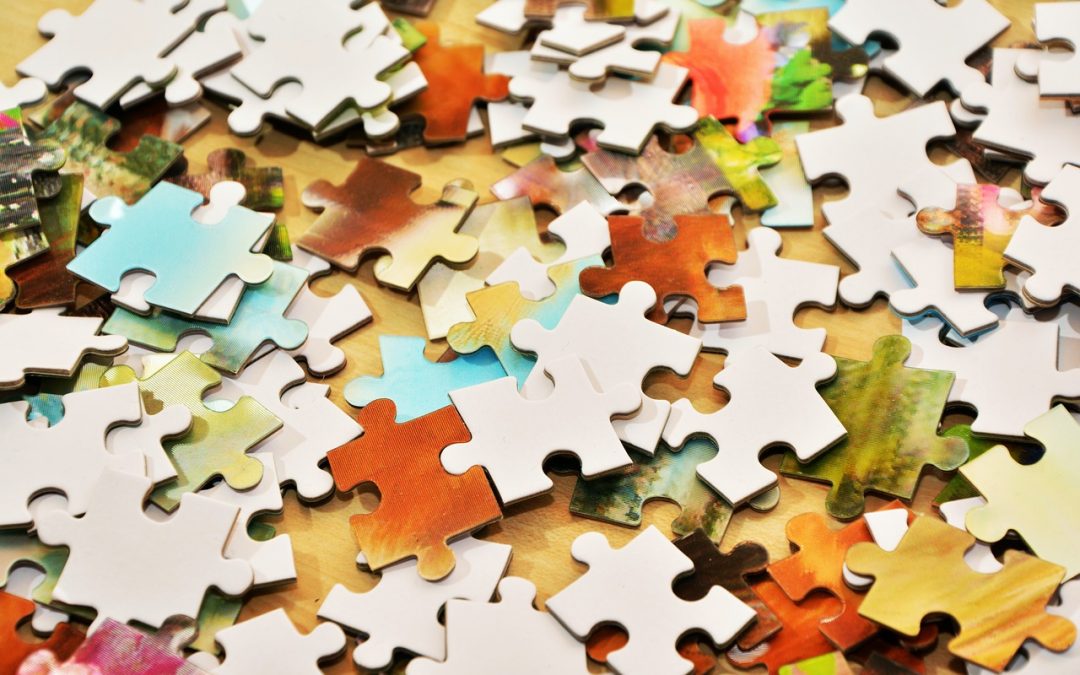You may think puzzles are child’s play, but really, they can play an important role in maintaining cognitive skills in the elderly.
Jigsaw puzzles and crossword puzzles both help the elderly (and those of every age!) keep working out the brain cells that deal with reasoning. Jigsaws require the person to use their fingers and arms, so that bit of exercise is also helpful. Evaluating the colors of the pieces, turning them to fit the other, and watching the progress made in completing the puzzle are all very positive actions for the senior.
Likewise, crossword puzzles or others like word searches, Soduku or mazes help to exercise the brain. We all know how hard it is to come up with a 16-letter word for “comet-like”! Puzzles make us think and actively engage. They’re also conversation starters, letting us share progress on how we’re doing or a new word we learned.
Jigsaw puzzles can also be shared with others once you’ve completed them. Box them up and pass along to a neighbor or friend!
For the elderly, days often pass slowly and the television set may be their most frequent companion. If your family member seems glued to the TV, ask if a jigsaw, crossword or other type of puzzle, or a favorite book would be enjoyable. It’s a fabulous way to encourage a beneficial “brain exercise” in the elderly (and everyone else too!). FootPrints caregivers love to encourage helpful activities, and have been known to help find “the missing piece”!



